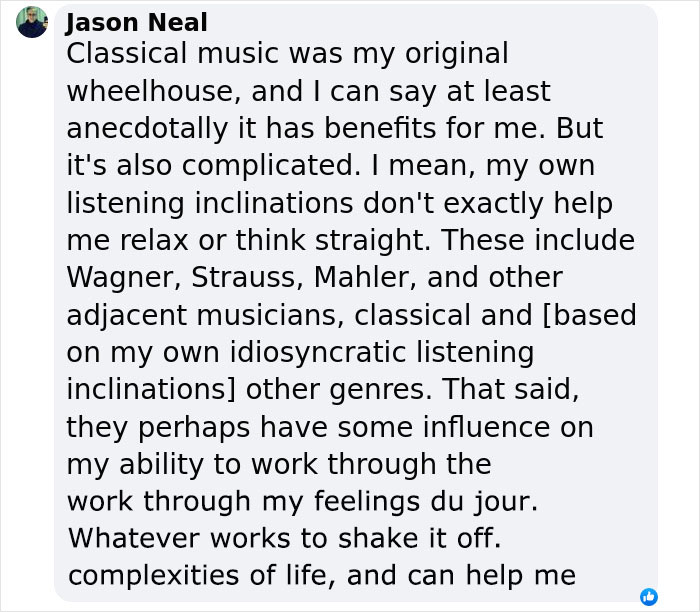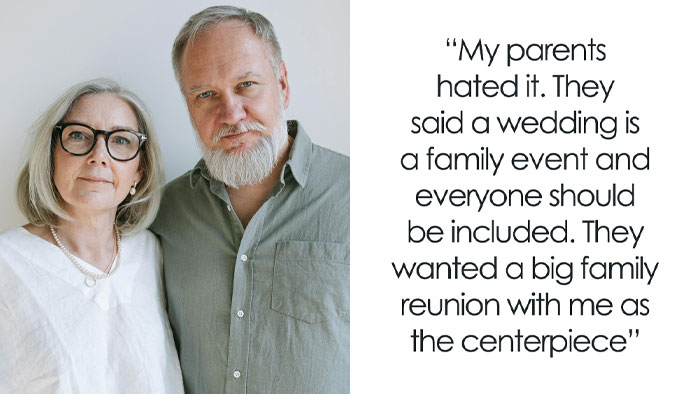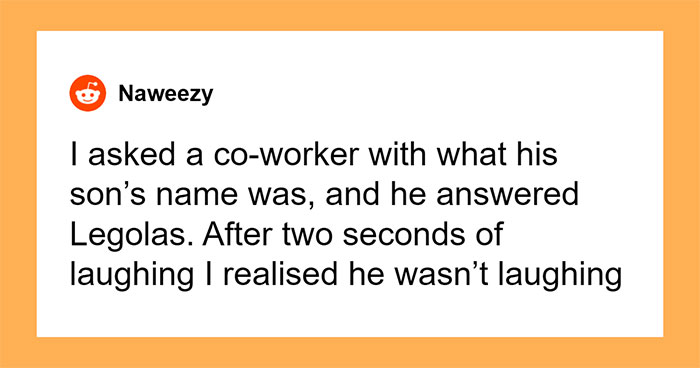
Netizens Rejoice As Scientists Learn Classical Music May Help Battle Treatment-Resistant Depression
Interview With ExpertIt’s no secret that music can be really uplifting. We have probably all experienced situations where the right kind of song at the right time seemingly boosts our moods much above the baseline we were just at moments ago. But did you know that there’s actually quite a bit more potential where that comes from?
One study recently discovered that classical music may be not only nice to listen to but also gains the potential to synchronize our brains. This means that when applied correctly, it could become a powerful tool in treating depression even when it appears to be treatment-resistant. Scroll down to learn all about it!
More info: EurekAlert
Music has long been known to lift our moods, but it turns out it may be able to do quite a bit more than that
Image credits: Nathan Martins / Pexels (not the actual photo)
Scientists at Shanghai Jiao Tong University discovered that Western classical music might work as a strong antidepressant
Every person is unique, and so are our problems. One such issue that usually has a really negative impact on people’s lives is depression. But while there are tools and methods for dealing with it, they don’t always work for every case.
This makes treating depression quite complicated, especially for those who seem to try out everything with no luck. Fortunately, scientists at Shanghai Jiao Tong University might’ve finally found something that could work even for the most treatment-resistant patients.
Image credits: Karyme França / Pexels (not the actual photo)
Conducted on 13 patients with treatment-resistant depression, the study showed that music achieves this by synchronizing certain parts of our brain
The study was conducted on 13 patients who were diagnosed with severe depression. All treatments, from simple antidepressants to something as complicated as deep-brain stimulation with the help of electrode implants – nothing seemed to work for them. At least until now.
Using those very same implants, the researchers discovered that Western classical music is quite a strong antidepressant, which achieves its effect by synchronizing the rhythmic patterns of activity between the patient’s auditory cortex and the reward circuit.
The researchers proceeded to group patients to better study the antidepressant mechanism that the music inhibited more precisely, eventually creating personalized music therapy plans for improvement. The classical music pieces were picked specifically so that the patient would have no familiarity with them, this way avoiding any interference from subjective experiences.
Image credits: Viktoria Slowikowska / Pexels (not the actual photo)
The scientists plan to continue their studies while also collaborating with various specialists to create more widely accessible health devices based on their research
Now that the initial trials have proven to be successful, the team plans to delve deeper and study the interaction between music and the deep structures of the human brain, as well as what role it plays in depressive disorders. At the same time, they’re already starting to use their knowledge to develop much more accessible products.
“By collaborating with clinicians, music therapists, computer scientists, and engineers, we plan to develop a series of digital health products based on music therapy, such as smartphone applications and wearable devices,” shared Professor Bomin Sun in the study’s press release.
“These products will integrate personalized music recommendations, real-time emotional monitoring and feedback, and virtual-reality multi-sensory experiences to provide convenient and effective self-help tools for managing emotions and improving symptoms in daily life.”
Image credits: Ketut Subiyanto / Pexels (not the actual photo)
Providing us with a psychologist’s perspective on the matter, Hanan Parvez told Bored Panda that music is something that you could describe as the sound of emotions, and it does a masterful job of representing our emotional states.
“It has to do with rhythms. Emotions are rhythms, too. Some drain our energy, and others energize us. This is why you can find music to represent almost any emotion. All that music does is amplify what’s already happening in your head,” said the expert, talking about how the right kind of music at the right time can have a massive effect on us.
Image credits: Ylanite Koppens / Pexels (not the actual photo)
Of course, just like with anything good, there are some downsides that you should look out for. The psychologist explained that “Since music releases feel-good chemicals in the brain, it can quickly become addictive.
But when used mindfully, music is an incredible regulation tool. It can pick you up when you’re down, and it can also help you explore your feelings to find the answers you’re looking for. Equally so, it can boost your flow when you’re doing well while also helping you relax and even feel more creative. It might not do things for you, but it helps immensely.
Image credits: Aramis Cartam / Pexels (not the actual photo)
Music has long been used to soothe our minds, enhance happy moments, and just generally make our lives better. It’s not without reason that parents often put their children to sleep with a lullaby or that so many celebrations worldwide have songs attached to them.
According to Jennifer L.W. Fink’s article on Pfizer, one of the main reasons is that music usually has a strong connection to our mood. Listening or even making musical creations has the tendency to increase blood flow to brain regions that are responsible for generating and controlling memory and emotions.
Image credits: Andrea Piacquadio / Pexels (not the actual photo)
At the same time, music is often a much more complex thing than we realize, and listening to it can easily become sort of an exercise involving our mind, and more specifically, memory. This collection of sounds that we hear is by no means random, and decoding it puts our brain in a pretty complicated task that could easily be compared to reading.
Music may be a great tool to shift our mood or help us remember things better, but it can also be a wonderful pain relief aid. While this doesn’t mean that your favorite tunes can make pain medicine obsolete, the distraction they provide is often the next best thing, as a good amount of pain we experience comes from our minds.
And lastly, music has the power to affect us not only when we can’t recognize it but also when we can’t even replicate the note and the rhythm. According to this study, there have been numerous instances of patients with severe brain injuries recognizing the emotions conveyed by music despite not being able to distinguish melodies.
Image credits: Ri_Ya / Pixabay (not the actual photo)
In the end, we could say that music is arguably one of humanity’s greatest inventions. It might not be something we can see or touch, but its effects are immense, going way beyond the material world, and affecting us in ways few other things can. After all, something like a car might be able to take you places, but it could hardly cure severe depression, could it?
What did you think about this story? Do you like classical music? Share your thoughts in the comments below!
The commenters loved the findings and collectively praised classical music
Poll Question
Thanks! Check out the results:
Pandas, the way you put a million unrelated links in the article, it's spam. It's f*****g dogshit. You should be ashamed of yourselves and f*****g re-evaluate your professional life choices. F*****G DOGSHIT
Let me preface this by saying that yes, I understand how depression works, I have chronic depressive disorder & will be on meds for the rest of my life. And by god, I would gladly do anything to take this black dog away. But a study with 13 participants?? And from a country still catching up to today's treatment of depression? I'm not saying that there may not be some truth to this but 13 participants is NOT a proper, scientific study. Some people just prefer classical music, others relax to death metal. It's highly personal.
Pandas, the way you put a million unrelated links in the article, it's spam. It's f*****g dogshit. You should be ashamed of yourselves and f*****g re-evaluate your professional life choices. F*****G DOGSHIT
Let me preface this by saying that yes, I understand how depression works, I have chronic depressive disorder & will be on meds for the rest of my life. And by god, I would gladly do anything to take this black dog away. But a study with 13 participants?? And from a country still catching up to today's treatment of depression? I'm not saying that there may not be some truth to this but 13 participants is NOT a proper, scientific study. Some people just prefer classical music, others relax to death metal. It's highly personal.

 Dark Mode
Dark Mode 

 No fees, cancel anytime
No fees, cancel anytime 







































































46
5